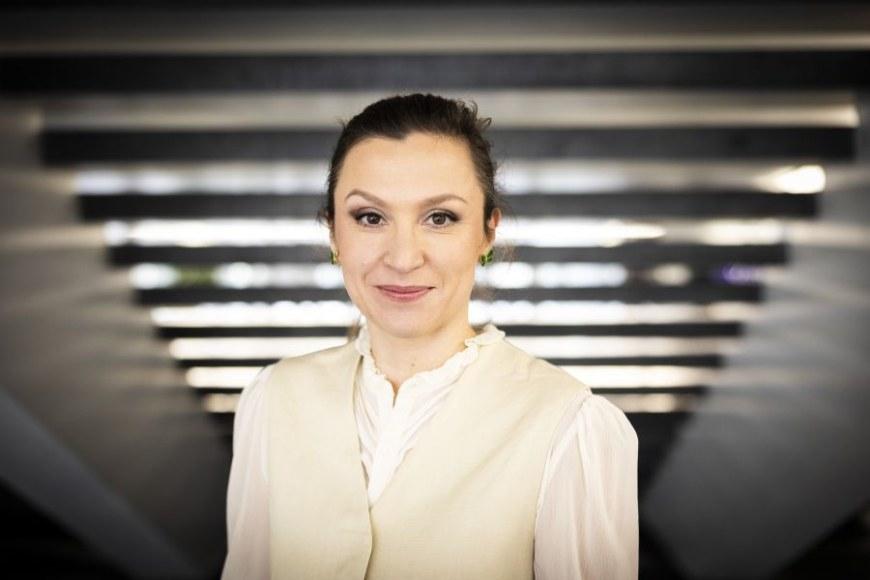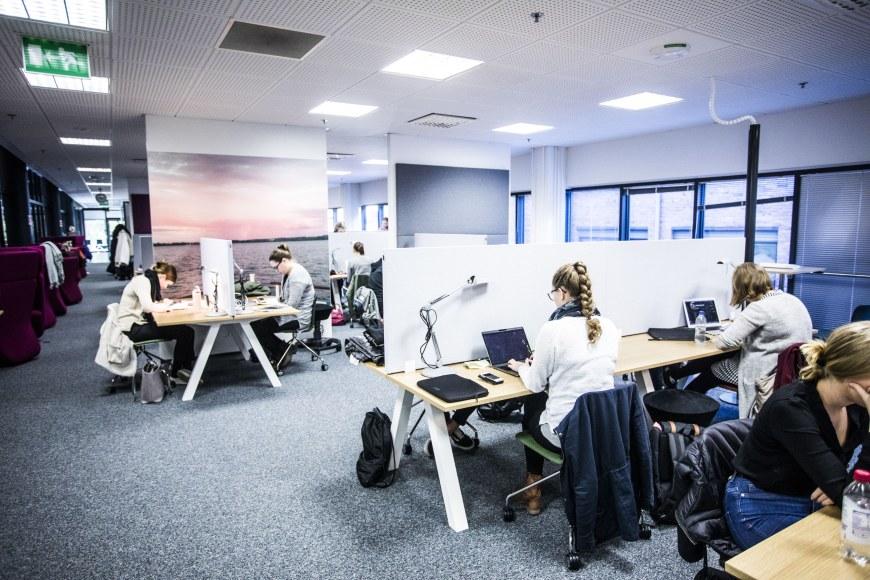Professor Nelli Piattoeva studies the sociopolitical contexts of education

Nelli Piattoeva’s current research interests focus on the education systems of the former Soviet states. In her earlier studies, she has also investigated how education reproduces nationalism in Finland. Piattoeva was born in the Soviet Union and went to school there and later in Russia until 1995. The Soviet Union collapsed in 1991 when Piattoeva was in primary school. Her childhood experiences played a part in her later choice to pursue research as a career.
“I saw with my own eyes how the political restructuring and the transition period affected schools: textbooks were replaced, exams were cancelled, and teachers did not always know the answers to pupils’ questions. My decision to study the relationship between education and society and the sociopolitical contexts of education was partly inspired by my childhood experiences,” she says.
Piattoeva explores how formal education is used as an instrument of governance in society. For example, schools have a role in the construction of national identity. She also studies the changing means of governing education, such as the introduction of assessments and the datafication of education, which are both numerical and quasi-objective in nature.
“When the exercise of power is channelled through numbers and other modes of knowledge production, it becomes both increasingly difficult and increasingly important to recognise,” Piattoeva points out.
Piattoeva is particularly interested in the expressions of nationalism in the current era of digital transformation. She examines how the historical role of compulsory education as a conduit for nationalism is manifested in the digital teaching tools and discourse on the digitalisation of education. She also investigates the role of commercial actors, such as edtech providers, in reproducing nationalism.
One important theme that comes up in the study of the digitalisation of education is sustainability.
“I want to bring an environmental perspective to the study of the digitalisation of education. Previous critical studies on datafication have largely focused on the negative effects that datafication has on different groups of people and our concepts of learning. These studies have shown, for example, that our understanding of learning changes or becomes overly narrow if it is solely based on observations that can be converted into numerical form,” Piattoeva says.
The results from the Programme for International Student Assessment (PISA) have sparked significant concerns about the state of education in Finland, although the PISA test is only one indicator of students’ academic achievement. While PISA has become the global yardstick for evaluating education systems, how we choose to measure educational outcomes may reshape our understanding of learning and how education should be developed.
“For this reason, it is important to also examine whether the emerging learning technologies are helping schools fulfil their responsibility to promote environmental awareness and implement sustainable practices. The environmental impacts of energy-intensive search engines and machine learning, or devices that generate hazardous waste must be made visible and, if possible, replaced with sustainable alternatives,” Piattoeva says.
Fostering a greater appreciation of scientific knowledge and encouraging more women to pursue an academic career
Piattoeva took up her appointment as Professor of Sociology of Education in the Faculty of Education and Culture at Tampere University in July 2023. Besides teaching and conducting research, she supervises doctoral researchers and works to secure external funding. For example, last autumn she participated in a call for proposals launched by the EU. She also leads the Research Centre on Transnationalism and Transformation (TRANSIT).
Piattoeva is currently busy with the preparations for the European Conference on Educational Research (ECER), Europe’s largest annual educational research conference that will take place in Tampere in August 2026. She chairs the local organising committee. The ECER conference is expected to draw 2,500 educational researchers from around the world.
As a professor, Piattoeva wants to raise awareness of the social and political contexts of education among students, her fellow researchers and policymakers.
“I believe professors have a special responsibility to safeguard the autonomy of science, especially during times when academic research is not only questioned but also subjected to various pressures and expectations, such as the demand to race for practical applications. Academic research, however, is about the development of thinking, among other things. I want to work to ensure that knowledge acquisition remains a valid end in itself and that enough time is allowed for it,” Piattoeva says.
Being a newly appointed female professor, Piattoeva is looking to encourage more women to climb to the top of the academic ladder. She has met several female researchers who are concerned about the challenges of combining work and family life.
“This is regrettable and even surprising in a country where we have grown accustomed to the expectation of equal participation of women in the labour market and in education. These women’s concerns are real and reflect the career uncertainty that comes from the lack of financial stability and the proliferation of fixed-term contracts in academia,” she says.
While she encourages women to embark on an academic career, Piattoeva stresses that it is important we take care of our well-being and do not lose sight of our dreams.
“No one should give up on their dreams because of their career plans.”
Piattoeva finds that collegiate women’s networks have been crucially important in her career as a researcher. Close friendships create a sense of belonging, build trust, and stir up interest in teaching and research.
Welcome to the inaugural lectures of the new professors on 16 May 2024.
Nelli Piattoeva
- Piattoeva wrote her doctoral dissertation exploring the relationship between education and nationalism at Tampere University in 2010.
- She spent the year 2017-2018 as a visiting scholar at the Humboldt University in Berlin and is eager to work abroad again.
- She takes care of her physical and mental well-being by doing yoga and playing tennis.
Contact person
Nelli Piattoeva
Professor, kasvatussosiologiaAuthor: Marianna Urkko





